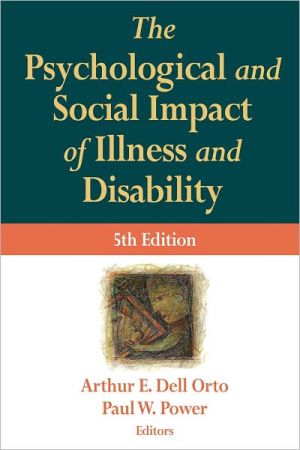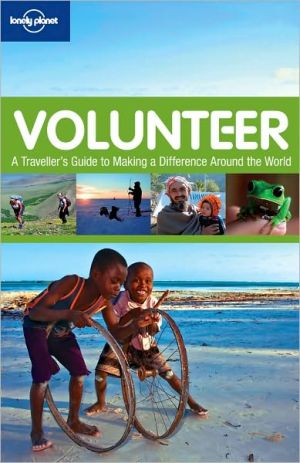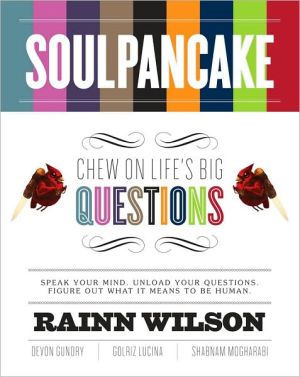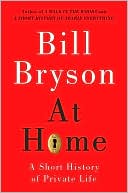The Psychological and Social Impact of Illness and Disability
"\ The newest edition of The Psychological and Social Impact of Illness and Disability continues the tradition of presenting a realistic perspective on life with disabilities. Articles included represent the best of developing concepts, theory, research, and intervention approaches. Classic articles kept from previous editions round out a diversity of viewpoints that will enrich student understanding of what is important in beginning rehabilitation practice.\ Relevant, expert articles plus...
Search in google:
The newest edition of The Psychological and Social Impact of Illness and Disability continues the tradition of presenting a realistic perspective on life with disabilities and then improves upon its predecessors with the inclusion of illness as a major influence on client care needs. Articles included represent the best of developing concepts, theory, research, and intervention approaches. Classic articles kept from previous editions round out a diversity of viewpoints that will enrich student understanding of what is important in beginning rehabilitation practice. Further broadening the scope of this edition is the inclusion of personal perspectives and stories from those living with illness or disabilities. These stories offer a glimpse into what it is like to cope day to day with these issues and direct examples of how effective current care models and rehabilitation theories can be. Relevant, expert articles plus insightful narratives combine to offer a bridge between theory and reality and guide students and professionals in rehabilitation practice closer to their goal of enhancing the quality of life for all individuals. Doody Review Services Reviewer:Gary B Kaniuk, Psy.D.(Cermak Health Services)Description:This book focuses not only on the impact of disability and illness on psychological and social functioning, but also on consumer empowerment and self-determination, along with self-expression. Purpose:The editors note, "the exploration and understanding of illness and/or disability in light of its psychological and social impact continues as the main direction of this book. But this fifth edition also highlights the personal perspectives or stories of those faced with the many demands of living with an illness or disability. These perspectives reflect an opportunity to speak out and express ones' needs and expectations.Audience:The audience includes students and professionals in rehabilitation practice. The two editors include contributions from 73 authorities in the field. Dr. Orto is Professor and Program Director of Rehabilitation Counseling in the Department of Occupational Therapy and Rehabilitation Counseling, Sargent College of Health and Rehabilitation Sciences at Boston University and has coauthored and coedited many books in the field of physical disabilities. Dr. Power is Emeritus Professor of Counseling, University of Maryland, and Adjunct Professor at the College of William and Mary. He has also authored numerous publications in the field of family and disability, and vocation/career assessment.Features:The five parts focus on historical and current perspectives on illness and disability; the personal impact of illness and disability; family issues; interventions and resources; new directions: issues and perspectives. After each part, there are discussion questions, personal perspectives, and personal exercises. Albert Ellis provides a salient story after part II about how he overcame numerous physical disabilities, both in the past and currently. Two appendixes provide perspective exercises (six exercises to help readers better understand the meaning of illness and/or disability in an individual's life) and personal perspectives (seven stories of courage despite severe physical limitations). Family members also give their insight. This book is valuable in the way it provides so many different perspectives. In chapter 35, the authors talk about eight myths that can influence individual and family expectations: 1. All illnesses and disabilities can be cured or prevented; 2. Restoration is more important than realistic acceptance; 3. Someone must pay; 4. The family and the individual will always appreciate medical intervention; 5. Unquestioning faith in the health care team and system; 6. Technology will provide all the answers; 7. My family will always be there for me because I was there for them; 8. If we are good to others and even provide financial assistance, caregiving, aid respite care, they will be good to us or respond in kind.Assessment:This book provides excellent information along with many discussion questions, personal stories, and personal perspective exercises. It is practical, easy to read, and effectively addresses important questions about the impact of disability/illness on an individual and the family. The reader will not be disappointed with this volume. It is one of the best books I have ever read in this area.
ContributorsForeword by Robert P. MarinelliPrefacePart I. Historical and Current Perspective on Illness and DisabilityIntroduction to Part IThe Disability Paradigm, David PfeifferUnderstanding How Disability is Defined and Conceptualized in the Literature, Barbara J. Lutz and Barbara J. BowersAn Integrative Conceptual Framework of Disability: New Directions For Research, Denise G. Tate and Constance PledgerTransforming Psychological Practice and Society: Policies That Reflect the New Paradigm, Carol J. Gill, Donald G. Kewman, and Ruth W. BrannonSocial Work Practice with People with Disabilities in the Era of Disability Rights, Richard L. Beaulaurier and Samuel H. TaylorModels of Disability: Implications for the Counseling Profession, Julie F. Smart and David W. SmartClassic ArticleThe Contribution of the Physically and Mentally Handicapped to Development, Jean Vanier Discussion QuestionsPersonal Perspective: Coping With A Journey Toward Recovery: From The Inside Out, Dale WalshPerspective Exercise 1: Reflections on Jean Vanier: How Far Have We Come? How Far Must We Go?Part II: The Personal Impact of DisabilityIntroduction to Part IIPsychological Adaptation to Chronic Illness and Disability: A Primer for Counselors, Hanoch Livneh and Richard F. AntonakObjective Self-Awareness and Stigma: Implications for Persons with Visible Disabilities, Andrew A. Phemister and Nancy M. CrewePsychosocial Issues of Women with Physical Disabilities: The Continuing Gender Debate, Margaret A. Nosek and Rosemary B. HughesFemale Sexuality and Spinal Cord Injury: Counseling Implications, Eva Miller and Irmo MariniCross-Cultural Counseling Issues of Males Who Sustain a Disability, Irmo Marini Psychiatric And Psychological Issues In Survivors Of Major Disasters, Carol S. NorthQuality of Life and Psychosocial Adaptation to Chronic Illness and Acquired Disability: A Conceptual and Theoretical Synthesis, Malachy BishopClassic ArticleSix Principles Relating Disability and Psychological Adjustment, Franklin C. Shontz Discussion QuestionsPersonal Perspective: Using Rational Emotive Behavioral Therapy Techniques to Cope with Disability, Albert EllisPerspective Exercise 2: Prime of lifePart III: Family Issues in Illness & DisabilityIntroduction to Part IIIFamily Decision Making In Foregoing Life-Extending Treatments, Virginia P. Tilden, Susan W. Tolle, Christine A. Nelson, Maye Thompson, and Susan C. EggmanMy Child is Not My Carer: Mothers with Physical Disabilities and the Well Being of Children, Ora PrilleltenskyParenting a Child With a Chronic Medical Condition, Jane Case-SmithIn the Midst of a Hurricane: A Case Study of a Couple Living with AIDS, Lydia P. Buki, Lori Kogan, Bethanne Keen, and Patti UmanParental Illness, Family Functioning, and Adolescent Well Being: A Family Ecology Framework to Guide Research, Sara Pedersen and Tracey A. RevensonClassic ArticleLife's challenges: Curse or Opportunity? Counseling Families of Persons with Disabilities, Mary R. Hulnick and H. Ronald HulnickDiscussion QuestionsPersonal Perspectives: My Life with Muscular Dystrophy: Lessons and Opportunities, Robert P. WinskeDealing with Spina Bifida: Mother's Perspective, Janet LingermanPerspective Exercise 3: My Family and Disability: Where Do We Stand?Park IV: Interventions and ResourcesIntroduction to Part IVThe Construct of Hope in the Rehabilitation Process, Amy B. Collins and Marvin D. KuehnSpirituality in Disability and Illness, Judy Kaye and Senthil Kumar RaghavanSpiritual Factors and Adjustment in Medical Rehabilitation: Understanding Forgiveness as a Means of Coping, Jon R. WebbThe Psychosocial Impact on Survivors of Extraordinary, Stressful, and Traumatic Events: Principles and Practices in Critical Incident Response for Rehabilitation Counselors Mark A. StebnickiWar, Death, and Bereavement: How We Can Help, Joan BederUsers of Assistive Technology: The Human Component, Martin G. Brodwin, Tristen Star, and Elizabeth CardosoClassic ArticleChanges in Attitudes Toward People with Handicaps, Beatrice A. WrightDiscussion QuestionsPersonal Perspective: Recovery and the Rehabilitation Process: A Personal Journey, James T. HerbertPerspective Exercise 4: Trauma HelicopterPart V: New Directions: Issues and PerspectivesIntroduction to Part VThe Implications of Positive Psychology and Wellness for Rehabilitation Counselor Education, Irmo Marini and Mitka Chacon"Successful Aging:" A Disability Perspective, Meredith Minkler and Pamela FademThe Promise of the International Classification of Functioning, Disability, and Health (ICF), Julie F. SmartRecovery from Psychiatric Disabilities, Patricia B. Nemec and Cheryl J. GagnePsychological Adaptation to Disability: Perspectives from Chaos and Complexity Theory, Hanoch Livneh and Randall M. ParkerEugenics, Euthanasia, and Physician-Assisted Suicide: An Overview for Rehabilitation Professionals, Steve Zanskas and Wendy CodutiReflections and Considerations, Arthur Dell Orto and Paul PowerClassic ArticleAging and Disability: Toward a Unified Agenda, Irving Kenneth ZolaDiscussion QuestionsPersonal Statement: Life's Lessons Taught Me by My Disability, Alfred H. DeGraffPersonal Statement: One More Burden, A Mother's Perspective, BernadettePersonal Exercise 5: Why Us?Appendix A: Perspective ExercisesIntroduction to Appendix A: Perspective ExercisesCommon Pain, Mutual SupportWho Needs This Kind of Help?Is the Person With a Disability More Important Than the Family?Enough Is EnoughFragile: Handle with CareI Am in Love With a StrangerAppendix B: Personal PerspectivesIntroduction to Appendix B: Personal PerspectivesChris Moy--Chris and His Mother: Hope and HomeLinda Stacey--Karen--My Daughter ForeverTosca Appel--Living in Spite of Multiple SclerosisJudy Teplow--Surviving ALS: A Daughter's PerspectivePaul Egan--My Life With a DisabilityDavid Collins--For Better or For Worse: DavidRobert J. Neumann--Experiencing Sexuality as an Adolescent with Rheumatoid ArthritisIndex
\ Reviewer: Gary B Kaniuk, Psy.D.(Cermak Health Services)\ Description: This book focuses not only on the impact of disability and illness on psychological and social functioning, but also on consumer empowerment and self-determination, along with self-expression. \ Purpose: The editors note, "the exploration and understanding of illness and/or disability in light of its psychological and social impact continues as the main direction of this book. But this fifth edition also highlights the personal perspectives or stories of those faced with the many demands of living with an illness or disability. These perspectives reflect an opportunity to speak out and express ones' needs and expectations."\ Audience: The audience includes students and professionals in rehabilitation practice. The two editors include contributions from 73 authorities in the field. Dr. Orto is Professor and Program Director of Rehabilitation Counseling in the Department of Occupational Therapy and Rehabilitation Counseling, Sargent College of Health and Rehabilitation Sciences at Boston University and has coauthored and coedited many books in the field of physical disabilities. Dr. Power is Emeritus Professor of Counseling, University of Maryland, and Adjunct Professor at the College of William and Mary. He has also authored numerous publications in the field of family and disability, and vocation/career assessment.\ Features: "The five parts focus on historical and current perspectives on illness and disability; the personal impact of illness and disability; family issues; interventions and resources; new directions: issues and perspectives. After each part, there are discussion questions, personal perspectives, and personal exercises. Albert Ellis provides a salient story after part II about how he overcame numerous physical disabilities, both in the past and currently. Two appendixes provide perspective exercises (six exercises to help readers better understand the meaning of illness and/or disability in an individual's life) and personal perspectives (seven stories of courage despite severe physical limitations). Family members also give their insight. This book is valuable in the way it provides so many different perspectives. In chapter 35, the authors talk about eight myths that can influence individual and family expectations: 1. All illnesses and disabilities can be cured or prevented; 2. Restoration is more important than realistic acceptance; 3. Someone must pay; 4. The family and the individual will always appreciate medical intervention; 5. Unquestioning faith in the health care team and system; 6. Technology will provide all the answers; 7. My family will always be there for me because I was there for them; 8. If we are good to others and even provide financial assistance, caregiving, aid respite care, they will be good to us or respond in kind."\ Assessment: This book provides excellent information along with many discussion questions, personal stories, and personal perspective exercises. It is practical, easy to read, and effectively addresses important questions about the impact of disability/illness on an individual and the family. The reader will not be disappointed with this volume. It is one of the best books I have ever read in this area.\ \








